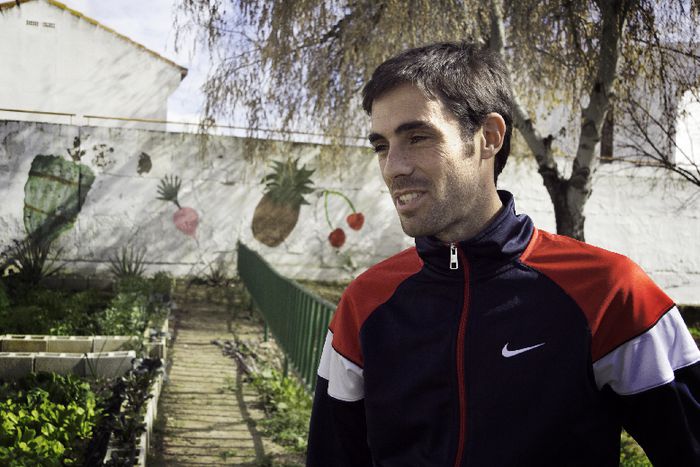
Marinaleda: The Utopia Without Unemployment
Published on
Translation by:
Kait BolongaroIn Spain, a town of 2,800 tries to keep the ideals of socialism alive. This seemingly magical place is called Marinaleda. But what lies behind the words and slogans? A journey in images to a place where unemployment is 'non-existent'.
Marinaleda is a utopic place: this small town in Andalusia, at least according to reports by the foreign press, doesn't have unemployment. Yet, this figure hovers at 29% in Spain. But where does utopia stop and the truth begin?
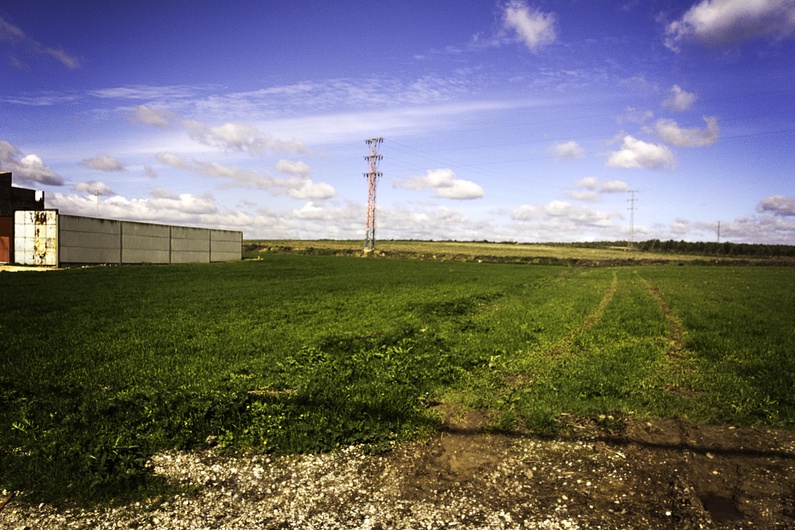 Marinaleda is an Andalusian town of 2,650 inhabitants. In the 1980s, activist Juan Manuel Sánchez Gordillo – the current mayor of the town – occupied a large property of one of the richest estate owners in the area together with other compañeros. Thus, the current Marinaleda was born, whose administration is pursuing a unique urban development project, in a country like Spain, where speculation in the construction industry is largely responsible for the current crisis.
Marinaleda is an Andalusian town of 2,650 inhabitants. In the 1980s, activist Juan Manuel Sánchez Gordillo – the current mayor of the town – occupied a large property of one of the richest estate owners in the area together with other compañeros. Thus, the current Marinaleda was born, whose administration is pursuing a unique urban development project, in a country like Spain, where speculation in the construction industry is largely responsible for the current crisis.
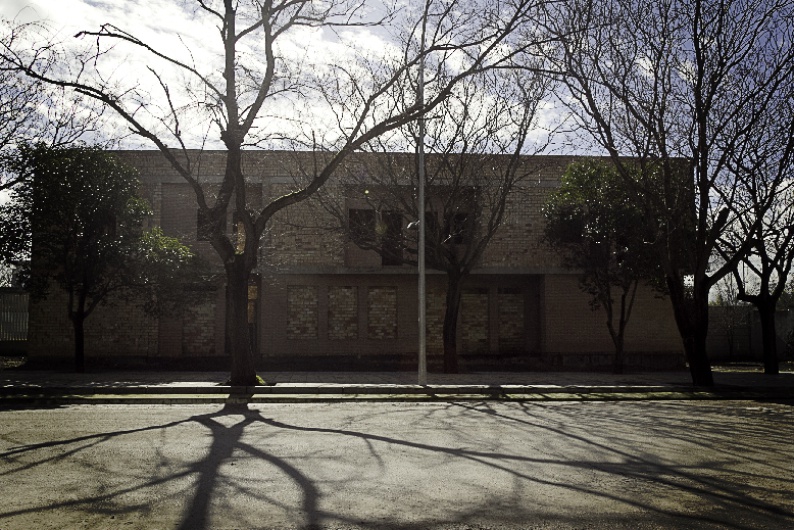 Here, a house isn't purchased with a mortgage; instead, you build it yourself. The parcel of land is given for free to the 'self-builder', and thanks to an agreement with the regional Andalusian government, the building material and some workers are available free of charge. The monthly fee to become the owner of a house is 15 euros per month. Since the houses are all self-made (350 up until now), there are still many to finish.
Here, a house isn't purchased with a mortgage; instead, you build it yourself. The parcel of land is given for free to the 'self-builder', and thanks to an agreement with the regional Andalusian government, the building material and some workers are available free of charge. The monthly fee to become the owner of a house is 15 euros per month. Since the houses are all self-made (350 up until now), there are still many to finish.
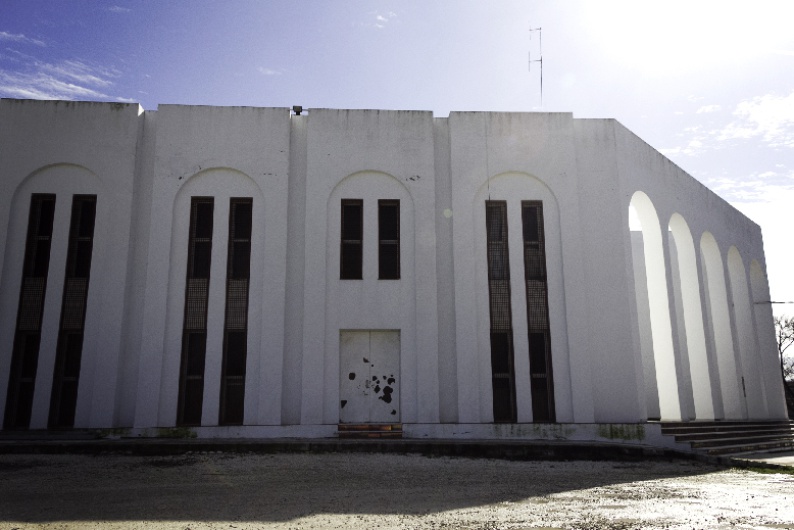 Our first stop is the Municipality. The mayor, Juan Manuel Sanchez Gordillo (who was recently acquitted for a lack of evidence amidst allegations of having led hundreds of people in a revolt to raid supermarkets) is not available for a meeting. We make an appointment with the vice mayor for the afternoon. Meanwhile, we stroll inside the town hall and find a public computer room.
Our first stop is the Municipality. The mayor, Juan Manuel Sanchez Gordillo (who was recently acquitted for a lack of evidence amidst allegations of having led hundreds of people in a revolt to raid supermarkets) is not available for a meeting. We make an appointment with the vice mayor for the afternoon. Meanwhile, we stroll inside the town hall and find a public computer room.
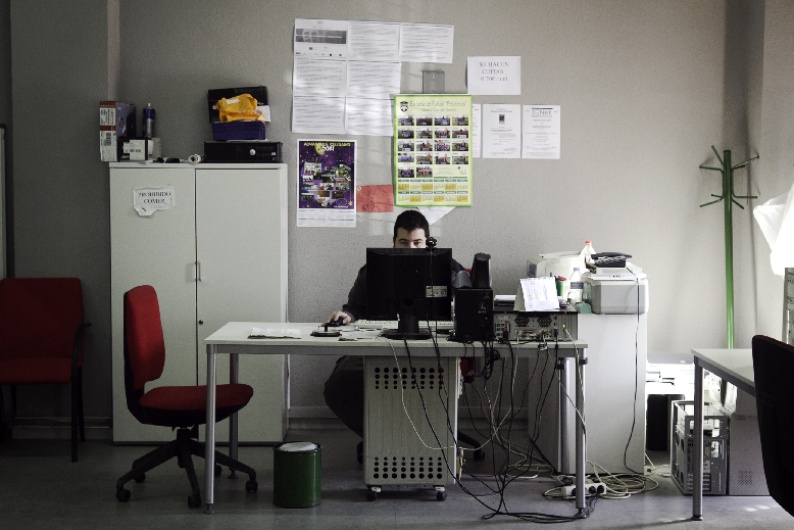 An employee tells us that there are not many people flowing in. Most of the inhabitants are farmers with little more than compulsory education. In addition, there are no specialised training programmes offered in Marinaleda, nor is the entrepreneurial spirit very strong. If it is true that young people are our future, a fundamental stage of our journey is the public school.
An employee tells us that there are not many people flowing in. Most of the inhabitants are farmers with little more than compulsory education. In addition, there are no specialised training programmes offered in Marinaleda, nor is the entrepreneurial spirit very strong. If it is true that young people are our future, a fundamental stage of our journey is the public school.
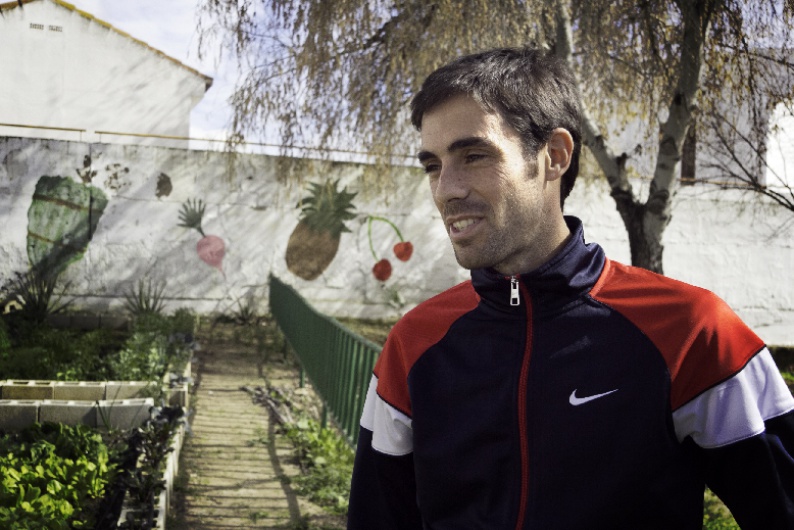 

Jorge Delgado Martin, Principal of the Encarnación Ruiz Porras school, promptly greets us. He then explains that the school's curriculum is determined by the region, like in the rest of Andalusia.
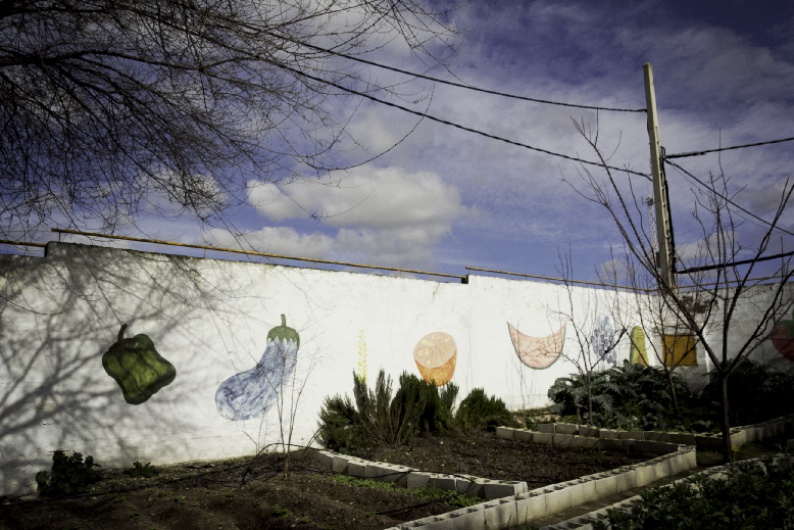 The public school in Marinaleda focuses its attention on special activities related to horticulture, which all children must attend, and civic education that reflects a society molded by social-communist ideals.
The public school in Marinaleda focuses its attention on special activities related to horticulture, which all children must attend, and civic education that reflects a society molded by social-communist ideals.
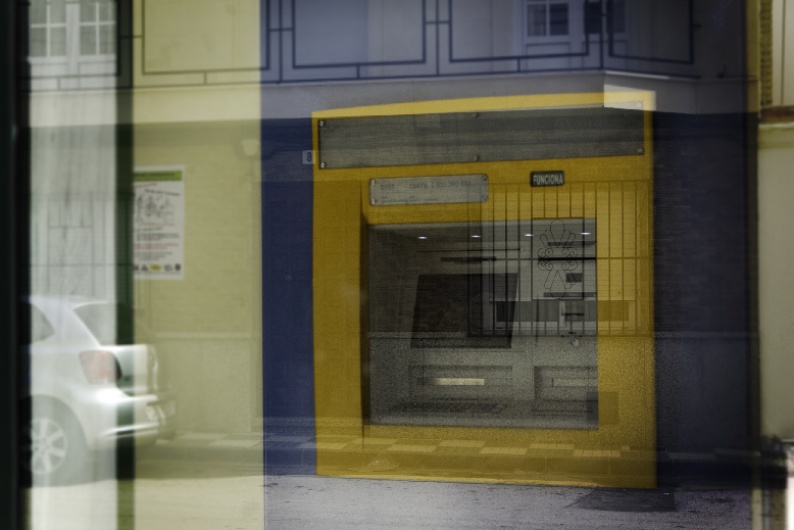 

We pass in front of one of the two savings banks present in Marinaleda. Unfortunately, no one can respond to our questions for privacy reasons. What is the nature of financial transactions in Marinaleda? Who are the customers of the institution? Does the Municipality have its own account? Besides the salaries of the population — which are rather meagre — part of the cash circulating in the territory comes from the PER (Plan de Empleo Rural — Ed.). An agricultural subsidy of 325,000 euros per year is given to the City of Marinaleda, to be granted to farmers who meet certain conditions. It also helps many residents to purchase construction material to build their housing.
Face to Face
Once inside the offices of the municipality, we overhear a man complaining of a theft. Why doesn't he report the crime to the police? We direct the question at Esperanza Saavedra, the Deputy Mayor, who finally meets with us.
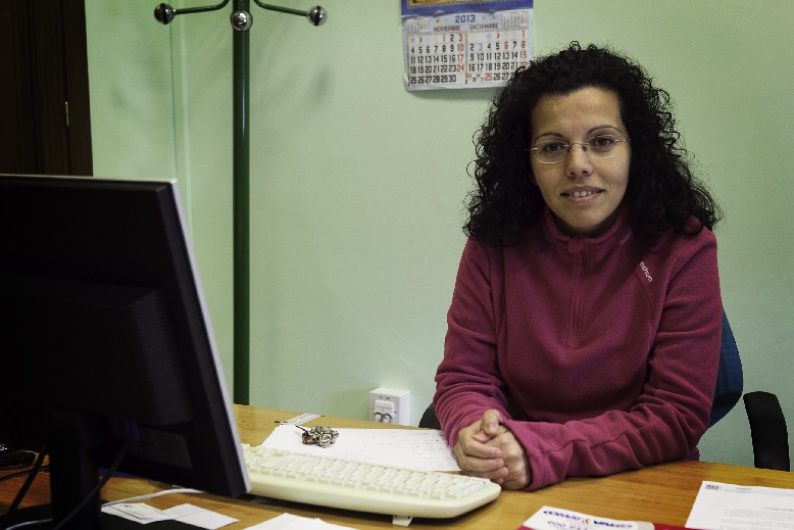 "In Marinaleda, there are no police. We believe more in the civic consciousness, not repression," she explains. "We prefer to finance projects that serve the people such as an inexpensive pool, for example. "
"In Marinaleda, there are no police. We believe more in the civic consciousness, not repression," she explains. "We prefer to finance projects that serve the people such as an inexpensive pool, for example. "
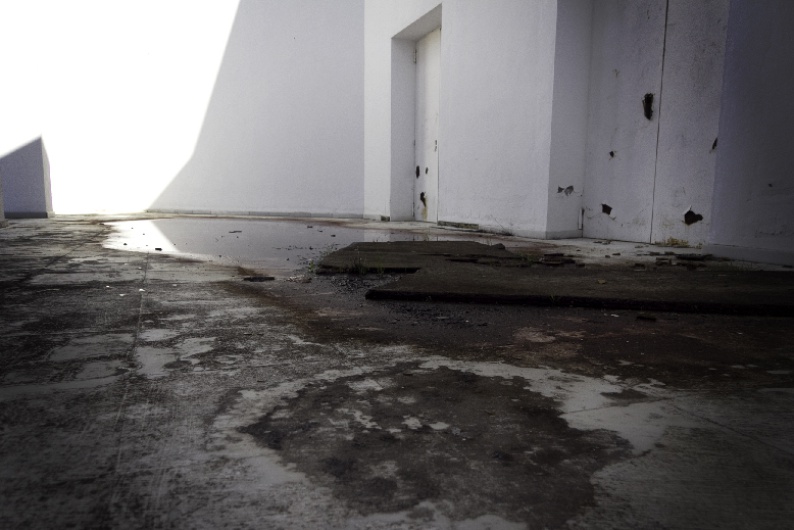 As we were leaving the Mayor's Office, we meet a guy in his 20s and a lady waiting to speak to the Mayor to ask for a job. But isn't this a utopian place, where unemployment is non-existent? "Not anymore," they assure us. Everyone works here, but only five days per month on average for a salary of 235 euros. In other words, the crisis has also affected Marinaleda. Furthermore, salaries are not paid immediately; sometimes, they even arrive three months late.
As we were leaving the Mayor's Office, we meet a guy in his 20s and a lady waiting to speak to the Mayor to ask for a job. But isn't this a utopian place, where unemployment is non-existent? "Not anymore," they assure us. Everyone works here, but only five days per month on average for a salary of 235 euros. In other words, the crisis has also affected Marinaleda. Furthermore, salaries are not paid immediately; sometimes, they even arrive three months late.
The municipality could not provide reliable data on unemployment. According to the Servicio Publico de Empleo Estatal (National Centre for Employment — Ed.), there are only 199 employment contracts registered in Marinaleda, all temporary and connected to agriculture, despite a population of 2,800 inhabitants.
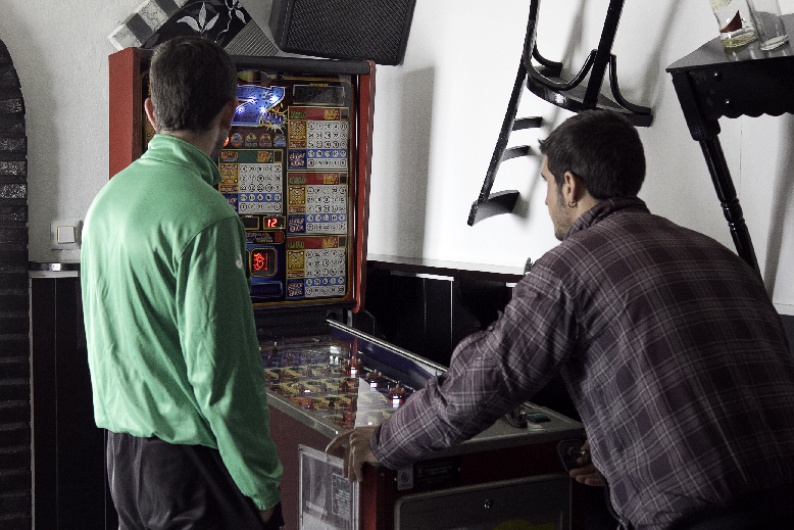 We meet different people in a bar, especially farmers returning from the olive harvest. Here, as elsewhere in the city (except at the bank), everyone is wearing a tracksuit, almost like a kind of uniform. The Soviet character of Marinaleda is also reflected in the dynamics of 'reaping': every night, a van equipped with a speaker passes through the streets of the village and announces which group of farmers — each group has its own name — will have to work in which field.
We meet different people in a bar, especially farmers returning from the olive harvest. Here, as elsewhere in the city (except at the bank), everyone is wearing a tracksuit, almost like a kind of uniform. The Soviet character of Marinaleda is also reflected in the dynamics of 'reaping': every night, a van equipped with a speaker passes through the streets of the village and announces which group of farmers — each group has its own name — will have to work in which field.
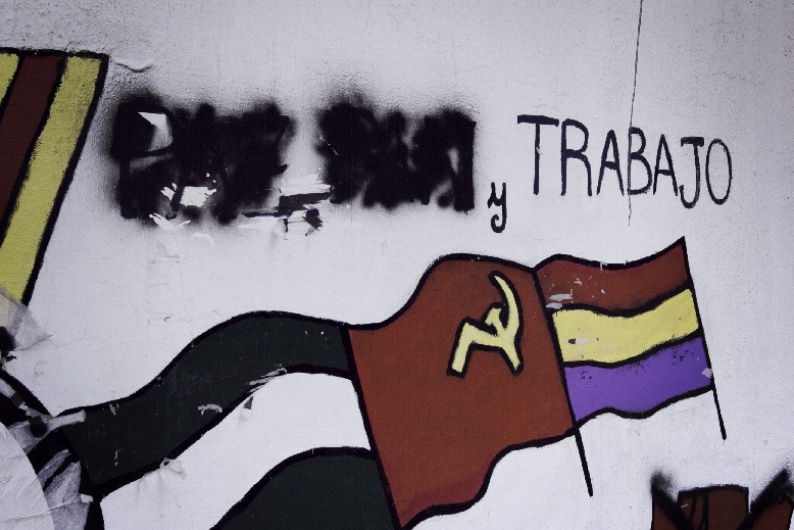 We arrived in Marinaleda hoping to find a utopia. Nothing could be farther from reality: Marinaleda is a village of farmers and residents who receive neither vocational training nor aid to encourage entrepreneurship. The mayor, in office for 35 years, has created a world in his own image and likeness: a pseudo-communist project where everything is untouched and nothing changes.
We arrived in Marinaleda hoping to find a utopia. Nothing could be farther from reality: Marinaleda is a village of farmers and residents who receive neither vocational training nor aid to encourage entrepreneurship. The mayor, in office for 35 years, has created a world in his own image and likeness: a pseudo-communist project where everything is untouched and nothing changes.
In this 'non-place', none of the Municipality's income is generated by the work of the people. Everything is based on subsidies from the regional, national and European governments. Marinaleda was created for 'Paz, Pan y Trabajo' (Peace, Bread and Work — Trans). Still, work that guarantees a decent life (and progress) is non existent.
Special thanks to Clara Flajardo Trigueros, who drove our journalist to Marinaleda and has been an essential reference point in the creation of this article.
This article is part of a special series devoted to seville. It's part of eu-topia: time to vote, a project run by cafébabel in partnership with the hippocrène foundation, the european commission, the ministry of foreign affairs and the evens foundation.


Translated from Marinaleda, il paese dei balocchi è andaluso



